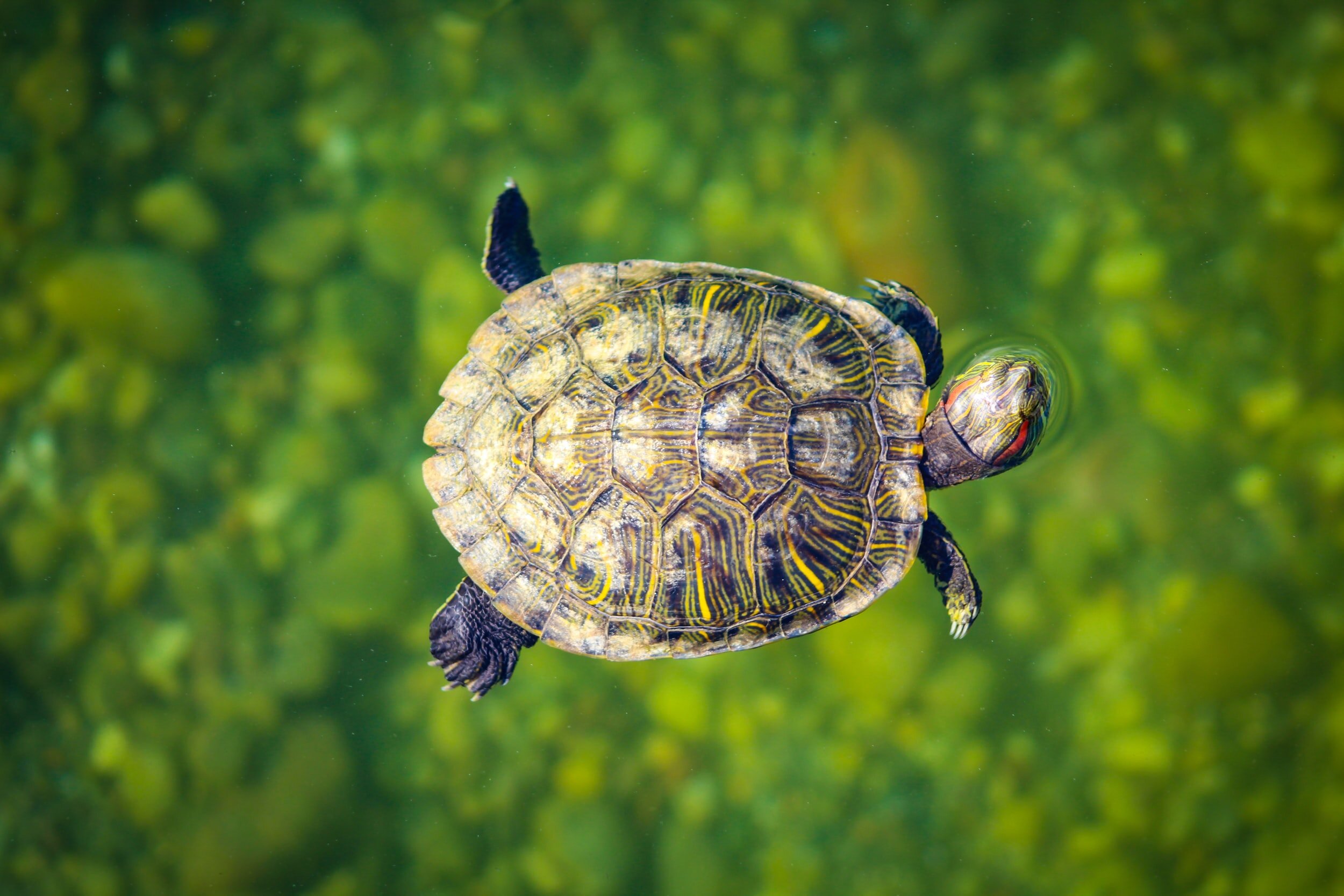Affiliated Project Networks
This multidisciplinary project is working to decipher the genomes of animals, plants, and microorganisms endemic to Chile to better understand native species and address scientific challenges.
i5K is sequencing and analyzing the genomes of 5,000 arthropod species and providing the scientific community with guidelines and best practices for arthropod genome projects and data management.
B10K will generate representative draft genome sequences from all extant bird species to decode the link between genetic and phenotypic variation, uncover the correlation of genetic, evolutionary, and biogeographical patterns, and evaluate the impact of ecological factors and humans.
10KP is working to sequence over 10,000 genomes representing every major clade of plants and eukaryotic microbes in order to generate large-scale plant genome data over the next five years.
Africa BioGenome Project (AfricaBP)
This project is a pan-African initiative to address food systems challenges and conserve indigenous biodiversity through genomics. These efforts include initiating, developing, and supporting the genome sequencing efforts of more than 105,000 species of indigenous flora and fauna.
The US Department of Agriculture (USDA) is partnering with EBP to better understand pest DNA, insect devastation of crops, and pesticide resistance to find new solutions to agricultural challenges.
The Amphibian Genomics Consortium (AGC) is an international initiative that strives to bring together people with an interest in using genomic tools to better understand amphibian ecology, evolution, and conservation.
Aquatic Symbiosis Genomics Project
This project aims to read the genomes of 1,000 freshwater and marine species spanning more than 500 symbiotic relationships to help scientists understand how species evolve and coexist.
ATLASea’s primary objective is to document and enhance our understanding of eukaryotic marine biodiversity within the French Exclusive Economic Zone, which is the second largest in the world. Their goal is to sequence a "reference" standard genome for each of 4500 carefully selected species.
Genome‐led understanding of this unique fauna will generate high impact science, contribute significantly to conservation, and consolidate capabilities across university, museum, government, and NGO partnerships.
Bat1K
Bat1K is an initiative to sequence the genomes of all living bat species, approximately 1,400 species in total.
Pollinators are critical for natural and agricultural systems. The Beenome100 project aims to sequence, assemble, and annotate the genomes of 100 U.S. bee pollinators, while also strengthening resources for the honey bee, a key pollinator and insect model.
BRIDGE stands for Biodiversity, Responsibility, Innovation, Development, Growth and Education. This is a partnership to build long lasting research collaborations between UK and Colombian Institutions.
To investigate the genomic basis of butterfly diversity, especially morphologically in a comprehensively phylogenetic context, this projects aims to provide high quality reference genomes of butterfly species.
California Conservation Genomics Project (CCGP)
CCGP is funded by the state and involves conservation biologists, geneticists, ecologists, and climate scientists from all 10 University of California campuses, as well as officials from state and federal regulatory agencies and nongovernment agencies.
The Canadian BioGenome Project aims to make available 400 high quality reference genomes for Canadian species that represent a diverse domain of life.
CanSeq150 aims to sequence 150 genomes to support sequence-based genomics research by enabling future research in biodiversity and conservation, applications in breeding and biomedicine, as well as technology development, across Canada.
Cartilaginous Fish Genome Project
This project aims to sequence genomes of more than 30 cartilaginous fishes, covering all the orders. With these new resources, scientists can investigate the evolutionary landscape of early jawed vertebrates as well as specific features of cartilaginous fishes.
Catalan Initiative for the Earth BioGenome Project
CBP aims to generate a detailed catalogue of the genome of the eukaryotic species of the Catalan Countries. These countries are located in the Mediterranean region of Europe and stretch along the east of the Iberian Peninsula.
Cetaceans Genomes Project
Their primary goal is to coordinate or facilitate generation of high-quality, nearly complete reference genomes for all cetacean species, to maximize the utility of cetacean genomic data for research and conservation.
Crab Genome Project
This project will sequence 11 crab species covering all the infra-orders of crabs and all sections in infra-order Brachyura. It will provide a better understanding of the evolutionary process of crabs and the genetic basis behind their complex traits.
The Darwin Tree of Life project aims to sequence the genomes of 70,000 species of eukaryotic organisms in the British Isles to transform the way we study biology, conservation, and biotechnology.
Deep-Ocean Genomes Project
DOG is focused on implementing genomics technologies to address diverse ecological and evolutionary hypotheses within and across a myriad of deep-sea habitats and lineages.
Diversity Initiative for the Southern California Ocean (DISCO)
DISCO is a research initiative from the Natural History Museum of Los Angeles County to enhance the ability to discover and document biodiversity in the marine environment by applying modern genetic technology.
Dresden HQ Genomes Project
This project sequences many genomes for VGP, Bat1K and other multi-genome, comparative projects at or above EBP standards
EBP Norway
EBP-Nor aims to produce high quality reference genomes of all Norwegian species, with the initial phase aimed at 150 carefully selected species as a proof-of-concept and to establish robust protocols.
Using five endangered Italian endemic species, Endemixit plans to produce five de novo genomes and re-sequence 20 individuals from two populations with different estimated population sizes.
Epizoic Diatom Genomes Project
This project aims to sequence the genomes of both epizoic (animal-associated) and closely related non-epizoic species. One of the main goals is to investigate the molecular traits of the ecologically peculiar taxa that live only on aquatic vertebrates.
Euglena International Network (EIN)
This is an initiative to galvanize the Euglena global community and provide a collaborative interface through assembly, identification, engagement, and implementation.
European Reference Genome Atlas
This is an effort to generate reference genomes representing European biodiversity. This range intends to encompass threatened, endemic, and keystone species of importance for agriculture, fisheries, pests, ecosystem function, and stability.
Fish 10,000 Genomes (Fish 10K)
Fish 10K aims to sequence the genomes of approximately 10,000 fish species, covering all the fish orders and most representative families in order to construct a large-scale and high quality genome database of fishes.
Genome 10K is a project to sequence the genome of at least one individual from each vertebrate genus, which is approximately 10,000 genomes.
Genomics of the Brazilian Biodiversity
Genomics of the Brazilian Biodiversity aims to genomic map Brazilian fauna and flora species that are threatened with extinction, exotic, or with potential to generate income for farmers involved in bioeconomy.
Global Ant Genome Alliance (GAGA)
GAGA is providing a comprehensive dataset of the genomic diversity of the world’s ants to understand global trends of ant evolution and identify the genetic features that have been crucial to diversification and evolution.
Global Genome Biodiversity Network (GGBN)
GGBN aims to make high-quality, well-documented, and vouchered collections that store DNA or tissue samples of biodiversity, discoverable for research.
Global Invertebrate Genome Alliance (GIGA)
GIGA is building a network of scientists to tackle challenges associated with genome and transcriptome sequencing and promote standards that will facilitate comparative approaches to invertebrate genomics.
Illinois EBP Pilot
During this pilot phase, agriculturally relevant insects for which little or no genomic data are available will serve as the focal taxa with which to demonstrate project scalability, communicate scientific discovery, and inspire potential economic and societal benefits.
Lilioid Monocots Core Group Genome Project
This project will sequence the genomes of representative species in each family of Liliales and Asparagales at the chromosomal level. This will help identify the genetic novelty underlying the innovation in flower morphology, geophyte, and secondary metabolites.
LOEWE Centre for Translational Biodiversity Genomics
They study the genomic variety across the Tree of Life to comprehend the origin and functional adaptations of diversity from genes to ecosystems.
Ocean Genomes
Ocean Genomes ambitious goal is to generate and release high-quality, near error-free reference genome assemblies for a representative species of all marine vertebrate Families.
This initiative will generate high-quality genome assemblies and annotations for 35 species representing all major evolutionary lineages in the land plant tree of life, enabling predictive understanding and engineering of the production of plant-based bioproducts.
PhyloAlps is a research project that aims to provide information about the flora in the European Alps, which currently describes more than 4,000 species.
Plant GARDEN (Genome and Resource Database Entry) is a portal site that curates genome and marker information of various plant species.
Plant and Fungi Trees of Life (PAFTOL)
This project uses numerous sources of genetic data, including herbarium specimens, new growth from previously collected seeds, freshly collected field material, and publicly available genomic and transcriptomic sequence.
Polar Genomes Project
This project carries out research on the unique features and functions that enable the unique and powerful biological processes in polar organisms with the aim of understanding the mechanisms of survival in extreme environments and discovering useful genetic resources.
Primate Genome Project
This project will generate high quality reference genomes in combination of long reads and short reads sequencing for all extant primate species.
High-quality, chromosomal-complete genome sequences are critical to the understanding of lepidopteran biology, as they allow detailed and authoritative description of the genetic underpinnings of key phenotypes and provide the essential data for large-scale evolutionary and ecological investigation.
Soil Invertebrate Genome Initiative
This project involves multiple public aquariums as collaborators and aims to unveil the unique evolutionary trajectory of sharks and rays by means of various resource provisions and genomics data production.
Taiwan BioGenome Project
Threatened Species Initiative (TSI)
TSI will create a national library of genomic data to support decision-making for biodiversity conservation, and help to better understand and protect Australia’s threatened species.
University of California Consortium
Ungulates Genome Project
Members of a diverse clade of mammals with hooves, ungulates exhibit extensive morphological and ecological diversity. This project will generate high quality chromosome-level genome sequences.
Vertebrate Genomes Project (VGP)
The goal of the VGP is to generate near error-free reference genome assemblies of all 66,000 extant vertebrate species, which will enable the study of how genes have contributed to the evolution and survival of these species.
Wise Ancestors
Wise Ancestors is focused on conserving biodiversity through genomic sequencing and biobanking projects that center Indigenous Peoples and Local Communities as project co-developers.
Yggdrasil
Yggdrasil principally exists to generate reference genomes for species of interest to Danish, Faroese, and Greenlandic researchers, regardless of the geographic origin of the species itself.
This large-scale project spearheaded by the Broad Institute aims to compare the DNA of over 200 different mammals to develop a deeper understanding of human health and disease.


























































